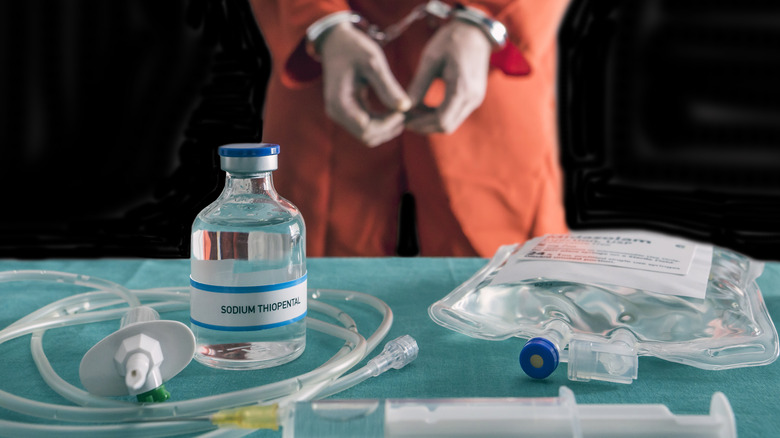Can Death Row Inmates Be Organ Donors?
The death penalty is a hotly contested issue in the United States, namely due to the inherently irreversible nature of the punishment in the event an inmate is proved innocent. In addition to many other countries having gotten rid of it as a legal sentencing, 23 individual U.S. states have gotten rid of it (via NBC). In the case of the remaining states and the federal government, however, it remains a viable option. In some cases, the condemned have expressed a desire, either altruistically or selfishly in the hopes of better treatment, per Texas Tribune, to become organ donors.
There are a number of issues that come with this subject, namely the ethics/optics of the government harvesting organs from prisoners and potentially negative responses from recipients (via Clarion Ledger). Also, the method of execution may leave their organs too damaged to be viable, according to ABA Journal. Both the federal government (after the National Organ Transplant Act of 1984) and many states have practically prohibited the practice, with some exceptions, such as for immediate family members. Even in states where organ donation to the public is or was possible, requests are overwhelmingly denied.
Death row inmates have donated organs
According to A&E, two notable death row donors were Gary Gilmore and Margie Velma Barfield. The former was a well-known local thief who was ultimately sentenced to death for robbing and murdering two people in Utah. After his execution by firing squad in 1977, Gilmore's pituitary gland, liver, and corneas were successfully removed per his request, while his kidneys were too heavily damaged by rifle fire.
Barfield was a woman put on death row for the poisoning of her husband, though she confessed to killing at least three other people as well (via All That's Interesting). Before her execution in 1984 by lethal injection, her request to donate was approved (via The New York Times). Organ donations have also been carried out on still-living death row inmates such as Steven Shelton. Sentenced to death alongside his brother and cousin for a man's murder, Steven donated a kidney to his mother after his sibling was found to be incompatible and later executed (via AP News).

